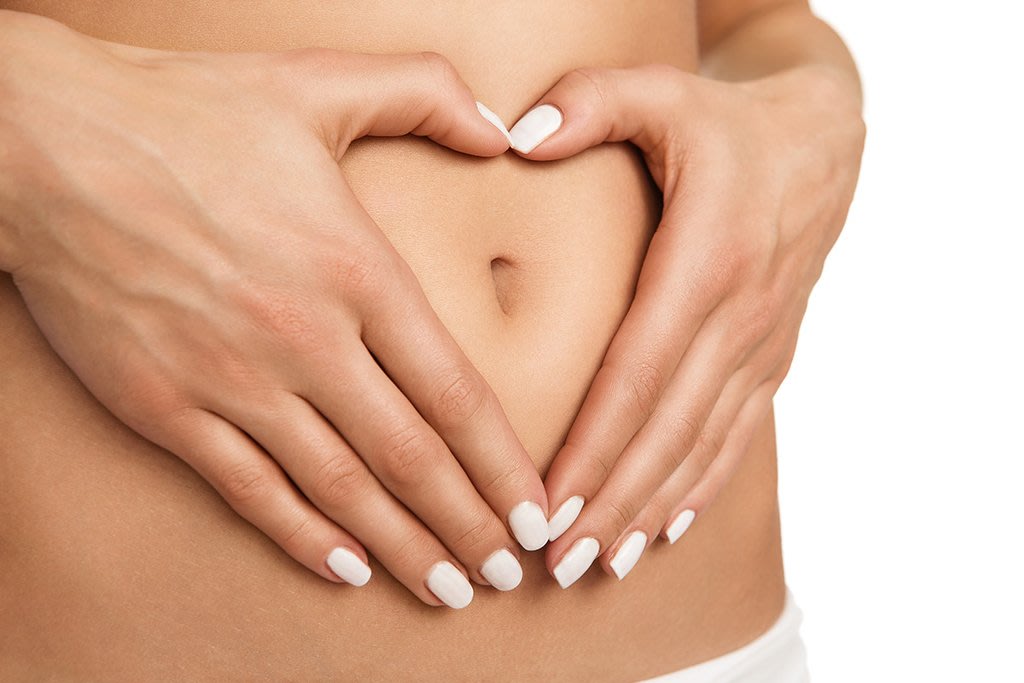How To Help Your Digestion

March 24, 2017

If you’ve experienced bloating or discomfort after eating, you might wonder what is going on in your digestive system! Not only can digestive issues be uncomfortable, the health of your whole digestive system is really important, so it’s good to know how to improve digestion.
Try out these simple tips to keep your digestive health in check:
Drink more water
Hydration is one of the most important ways we can assist our body, including the digestive process. Water can help your body to digest food and move the nutrients through your digestive system. Drinking water also boosts our natural detoxification process and can reduce the chance of constipation.
Take smaller bites
Before it hits your stomach, the process of breaking down food has already begun. By taking smaller bites, the enzymes in our saliva have more time to break down the food you’re eating. You can reduce the amount of work your stomach has to do by taking in smaller portions of food and chewing them thoroughly.
Reduce your caffeine intake
As tasty as that second cup of coffee might be, it can have negative effects on your digestion. Drinks high in caffeine can lead to increased levels of stomach acid, which may cause indigestion or an upset stomach. Try swapping coffee for herbal teas or water.
Eat more fibre
Diets that are high in fibre can help your digestion as fibre keeps food moving through the digestive tract. Fibre-rich foods help keep the digestive system healthy, and not eating enough fibre may lead to constipation. Water helps fibre-rich foods to pass through your system easier, as we’ve touched on already. Lots of women are not getting enough fibre in their diet, so make sure your diet includes adequate fruit, vegetables and whole grains.
Eat real foods
Highly-processed foods are often low in fibre and can slow down the natural digestive process, which may lead to bloating, gas or constipation. Try to avoid eating foods that are high in refined sugar, salt and processed oils as these provide your body with little nutritional value and can upset your digestive system.
Add probiotics or fermented foods to your diet
Probiotics exist naturally in your stomach. Their role is to help balance the level of good bacteria in your gut. For a natural source of probiotics, you can eat plain Greek yoghurt or try eating fermented foods, such as kimchi, sauerkraut or kefir.
Reduce stress
Stress can affect your body in a range of ways, including messing with your digestion. With increased stress, the digestive system can go into overdrive. Your nervous system can also affect the contractions of your digestive muscles, which may lead to indigestion or nausea. Try to manage your stress levels with gentle exercise, meditation or mindful breathing.
Get regular exercise
Exercise can help to improve digestion and the natural elimination process by stimulating the intestinal muscles, which helps food to pass through the digestive system. Other gentle exercises, such as yoga, can also help to reduce any bloating and encourage better digestion.
It’s true what they say — good health really does come from within. Try following these tips to give your digestion a helping hand.

A more empowered you starts with Sweat, and our editorial team is here to bring you the latest fitness tips, trainer recommendations, wellbeing news, nutritional advice, nourishing recipes and free workouts.
* Disclaimer: This blog post is not intended to replace the advice of a medical professional. The above information should not be used to diagnose, treat, or prevent any disease or medical condition. Please consult your doctor before making any changes to your diet, sleep methods, daily activity, or fitness routine. Sweat assumes no responsibility for any personal injury or damage sustained by any recommendations, opinions, or advice given in this article.
Wellbeing